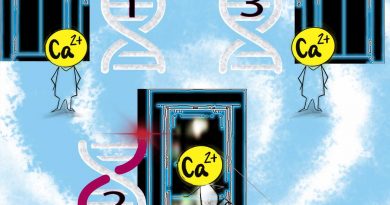Obituary: George Broze, professor of medicine, 72
George J. Broze Jr., MD, a well-known leader in the field of hematology and a professor of medicine at Washington University School of Medicine in St. Louis, died of a heart attack June 19, 2019, at his home in St. Louis County. He was 72.
Broze, also a professor of cell biology and physiology, had particular expertise in the management of blood clotting and bleeding. He first came to Washington University in 1976 as a clinical fellow in hematology and remained at the School of Medicine for his entire career.
“George was a beloved physician-scientist,” said Victoria J. Fraser, MD, the Adolphus Busch Professor and head of the Department of Medicine. “He made major contributions in the hematology division and the Department of Medicine through his exceptional patient care and scientific accomplishments.”
Broze’s research focused on the role of blood coagulation factors in the inflammatory response and in vascular disease, with his most recent work focused on an inhibitor of coagulation called tissue factor pathway inhibitor (TFPI). His research has been supported by grants from the National Institutes of Health (NIH) for many years, with his most recent grant from the National Heart, Lung, and Blood Institute still ongoing. His research collaborators at the School of Medicine included Alan Schwartz, PhD, MD, and the late Phil Majerus, MD, and Evan Sadler, MD, PhD.
Beginning in 1980, Broze served as an attending physician and as director of the transfusion unit at what was then Jewish Hospital. He also was an attending physician at Barnes Hospital from 1987 to 1996. Further, he was part of the hematology consult service at Barnes-Jewish Hospital, where he had been caring for patients since 1997.
Beginning in 1980, Broze taught hematology to medical students at Washington University. He was a talented clinician and teacher, according to his colleagues, and his work with TFPI, Protein Z and human tissue factor pathway inhibitor eventually earned him 17 patents.
“George’s contributions were widely recognized, and he was a superb clinician whose advice often was sought in the most difficult bleeding and blood-clotting cases,” said his friend and colleague Stuart Kornfeld, MD, the David C. and Betty Farrell Distinguished Professor of Medicine, and a professor of biochemistry and molecular biophysics. “He was a world leader in the field of blood coagulation and best known for the discovery of a protein in plasma that he called TFPI. He established that TFPI plays a central role in regulating the extent of coagulation and preventing thrombosis, and his work provided the field with an integrated pathway of blood coagulation.”
Born in Seattle in 1946, Broze was a Phi Beta Kappa graduate of the University of Washington in Seattle, with a bachelor’s degree in physics. He earned his medical degree from the University of Washington School of Medicine and completed his internship and residency at North Carolina Memorial Hospital in Chapel Hill, N.C.
Broze served on the editorial boards of the journals Blood, Current Opinion in Hematology, and the Journal of Thrombosis and Haemostasis, among others. He was a member of the Association of American Physicians, the American Society for Clinical Investigation, the American Society of Hematology, the American Heart Association, and he served in the Hematology Study Section of the National Heart, Lung, and Blood Institute.
He is survived by his wife, Jilla; his sons George John “Yuri” Broze III and Charles “Chip” Broze Belpedio (Tony Belpedio); and his brother, Greg Broze.
Funeral services will be private. In lieu of flowers, the family requests letters with anecdotes and memories be mailed to his home at 15 West Point Lane, St. Louis, Mo., 63131.
Source: Read Full Article



